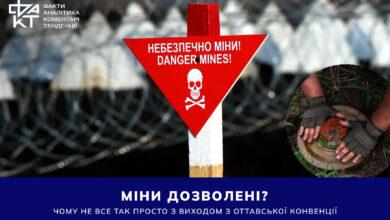American companies in Ukrainian subsoil: why the memorandum on investments raised concerns in Kyiv and Brussels

On Thursday, Ukraine and the USA signed “Memorandum of Intent”, which opens the way to a great economic partnership and at the same time raises difficult questions about control over strategic resources and post-war reconstruction. As First Deputy Prime Minister Yulia Svyridenko reported, the document provides for the creation of an Investment Fund for the restoration of Ukraine, as well as preparation for a full-fledged economic agreement, which the parties plan to finalize by April 26.
According to the Ukrainian government, the purpose of the document is to activate investments in reconstruction, support of small and medium-sized businesses, and infrastructure modernization. However, certain provisions of the memorandum cause reservations, because it is not only about money, but also about US access to Ukrainian “natural resources and critically important minerals.” Later on Thursday, during a meeting in the Oval Office with Italian Prime Minister Giorgia Maloney, Donald Trump said that his administration plans to sign a full-fledged agreement on access to Ukraine’s natural resources and energy assets as early as next Thursday, reports Financial Times.
Nadra in exchange for stability? What does the memorandum between Ukraine and the USA mean
Ukraine and the United States have officially declared their intention to conclude a full-fledged agreement on economic partnership, at the center of which is the creation of a special investment fund for the reconstruction of Ukraine. The relevant Memorandum of Intent was signed by the parties against the background of technical negotiations held in Washington on April 11-12, 2025.
The memorandum emphasizes:
- The US recognized Ukraine’s significant contribution to global security, including its voluntary relinquishment of the world’s third largest nuclear arsenal;
- Washington seeks not only to continue support during the war, but also to invest in the country’s post-war reconstruction;
- the new agreement will not contradict Ukraine’s European integration course or obligations to international creditors;
- signing a full-fledged agreement requires active political support from both sides: Prime Minister of Ukraine Denys Shmyhal is planning a visit to Washington from April 21 to conclude negotiations at a high level;
- the parties expect to finalize the text of the agreement by April 26, 2025.
The formalization of economic partnership, supported by the creation of an investment fund, should become one of the key instruments of international participation in the restoration of Ukraine — with the participation of not only governments, but also private capital.
Security on pause, subsoil — a priority?
Behind the scenes of official rhetoric is a sharp diplomatic game. Edition The New York Times reminds that back in February, a high-profile signing of the agreement on critical minerals was planned in the White House with the participation of Presidents Trump and Zelensky. But everything broke down after a public conflict in the Oval Office. According to sources, one of the reasons is the demands of the American side regarding control over Ukrainian natural resources.
Previous versions of the agreement provided for the creation of an investment fund, which would be financed by the profits from the extraction of oil, gas and rare earth metals in Ukraine. And although the money from this fund is supposed to go to reconstruction, American companies get the priority right to participate in multibillion-dollar projects.
Despite the fact that official Washington has so far refrained from commenting, US Treasury Secretary Scott Bessent has already said that he expects to sign the full agreement next week. Probably, this will be a variant of the document in which the US will get strategic access to the Ukrainian subsoil — as part of a “joint investment” in the restoration of the country. However, critics point out that similar models have often led to economic dependency in the past. Formally, this is help, but in reality it is control over resources. And the fact that the memorandum contains no mention of security guarantees or clear U.S. commitments only adds to the concern.
The Ukrainian side has repeatedly emphasized that economic cooperation with the United States must be inextricably linked with security guarantees. But there is not a word about it in the memorandum. And if Washington really plans to discuss only the economy without taking into account the needs of defense, this is an alarming signal. The signing of the “full agreement” is expected already next week. Then it will become clear whether Ukraine will receive real support — or just another treaty with blurred benefits and clear obligations in favor of the United States.
What does Trump say about the Memorandum?
US President Donald Trump said he expects to receive $500 billion from Ukrainian natural resources as part of the new agreement, including access to rare earth metal deposits, which are mostly undeveloped in Ukraine. For comparison: Ukraine’s annual revenues from mineral resources are only about $1 billion.
Trump calls this agreement “compensation” for the military aid that Ukraine received from the Biden administration. During the negotiations for the agreement and the truce, he briefly suspended the supply of weapons and intelligence to Kyiv, effectively increasing the pressure. Under these conditions, Ukraine had limited room for maneuver and agreed to sign a memorandum of intent first, hoping to buy time before a final agreement.
Although the document mentions a fund for reconstruction, it does not specify from which sources it will be replenished. Previously, there was talk of redirecting half of the rent from the extraction of resources from the state budget to the fund. US security guarantees are not mentioned in the text of the memorandum either.
First Deputy Prime Minister Yulia Svyridenko reported that the final agreement must be ratified by the US Congress and the Verkhovna Rada of Ukraine.
A deal with potential, not betrayal: why you should keep a cool head
Information noise surrounding the Minerals Memorandum between Ukraine and the USA has reached its peak: from loud claims of looting to apocalyptic warnings about the loss of sovereignty. However, it is worth taking a break and looking at the situation soberly, considers Andriy Kobolev, Chairman of the Board of Naftogaz of Ukraine. The US, like any global player, negotiates hard — using the well-known strategy of “anchoring” in negotiation theory. Its essence lies in inflated starting requirements in order to shift the “point of reference” in one’s favor. In this case, it was about $500 billion, which Ukraine is supposed to return. This is a typical negotiating tactic, not a final demand.
In global practice, the US almost never turns military aid into debt. Even during the Second World War, the Union received aid under the Lend-Lease program, which was partially compensated years later – and far from fully. So there are practically no precedents for the country to be forced to return everything.
How to react to such “anchors”? In classical negotiation science, it is advised not to lead a discussion within the limits of an imposed framework, but to form your own. That is why the current version of the agreement should not be taken as a dogma – it should be analyzed professionally, involving strong legal expertise, preferably from the USA.
But the most important thing is to focus not on emotions, but on possibilities. First: we have a chance to get a powerful partner for the development of the Ukrainian subsoil, which for decades remained untouched due to a lack of investment and technology. In particular, this applies to such complex objects as the Black Sea shelf, which we will never master without the support of a strong ally. The second is that the participation of American companies in Ukrainian assets (from titanium to gas) can automatically make their protection a priority of US foreign policy. If the resources become part of the interests of American business, they will also receive political cover.
So, it is not about “surrendering sovereignty”, but about a potentially beneficial change in configuration. The main thing here is not to lose in negotiations. But if the Ukrainian team acts competently, the deal can be a breakthrough, not a threat.





